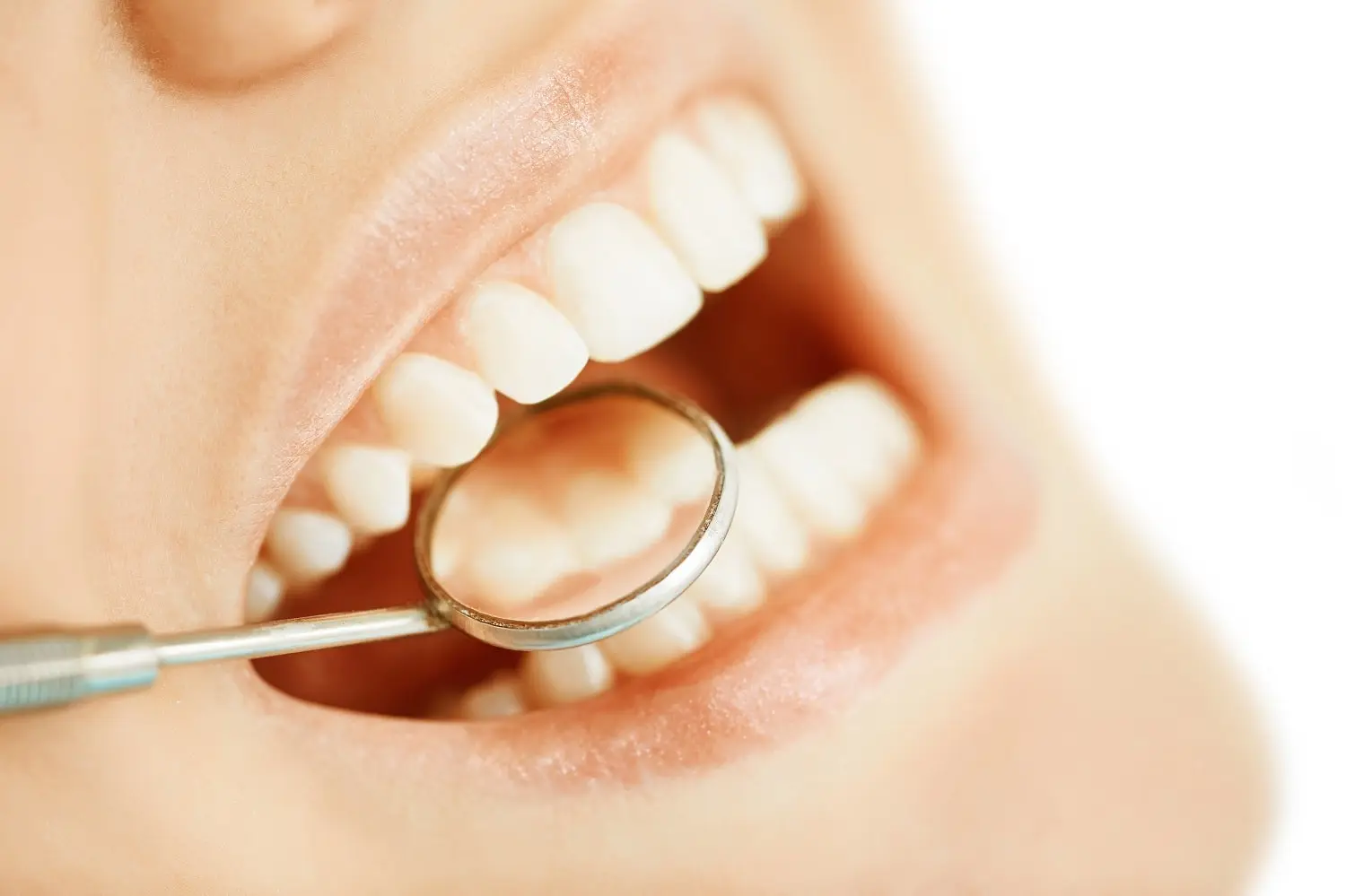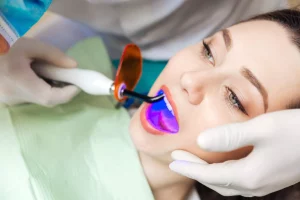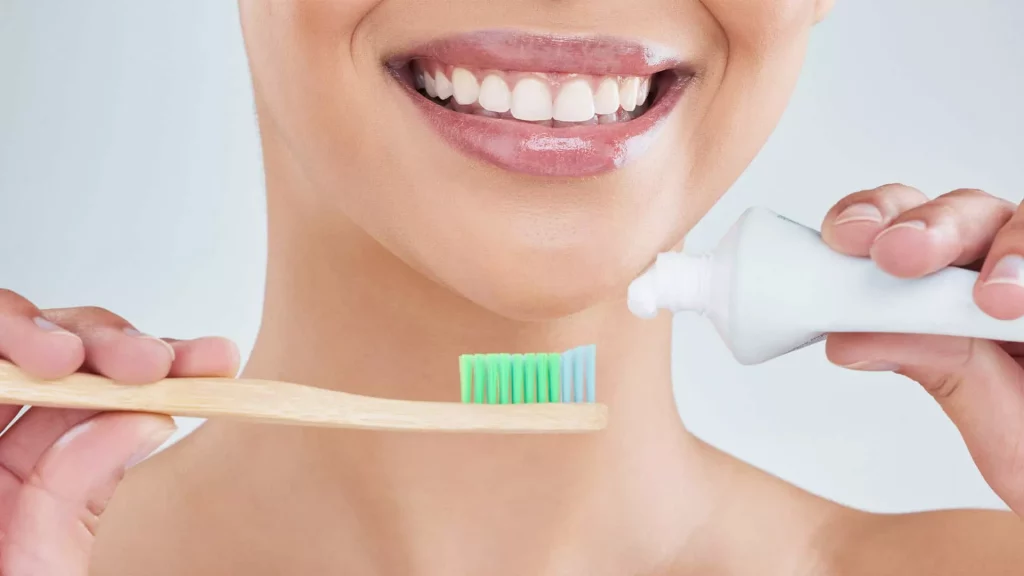Last Updated on: 19th December 2025, 09:21 am
Dental pain is one of the most frequent causes of seeking dental consultation. It can have various causes, and many patients turn to self-medication to alleviate it on their own. NSAIDs are widely used medications to relieve dental pain. We will tell you everything about the use of these drugs in dentistry and what is the connection between ibuprofen and oral health.
What are NSAIDs?
Non-Steroidal Anti-Inflammatory Drugs (NSAIDs) are a family of drugs with anti-inflammatory, analgesic (pain relief) and antipyretic (fever relief) properties. They are available for dispensing with and without a prescription.

Ibuprofen, aspirin, naproxen, diclofenac, and celecoxib are the most widely used NSAIDs for dental pain management. Depending upon the region, a variety of medications with various trade names contain NSAIDs. For this reason, whenever an over-the-counter medication is purchased, it is important to read the label to know its components.
The relationship between ibuprofen and oral health
NSAIDs work by blocking the production of certain chemicals in the body that causes inflammation. By solving the inflammation, they produce pain relief. Their greatest effectiveness occurs with pain caused by an inflammatory process.
In general, NSAIDs like ibuprofen, are often used to treat conditions such as arthritis, menstrual cramps, headaches, colds, and the flu. In dentistry, NSAIDs are widely prescribed for
-
- Relief from pain and inflammation after a surgical or other dental procedure.
- To reduce the inflammation and pain of an infection.
Do NSAIDs cure dental pain?
In dentistry, pain has multiple causes; however, most of the time it is due to cavities (holes in the teeth), gum disease, infections, abscesses, or inflammation of the nerve inside the tooth ( pulpitis). Less frequent cases of dental or oral pain are orthodontic treatments, bruxism, cysts, or tumors.
Many times, the pain occurs when it is not possible to access timely dental care, so patients tend to self-medicate. Therefore, it is important to clarify that NSAIDs work well to relieve odontogenic pain, but do not cure the cause of the pain. The best course of action is to schedule a consultation with a dentist as soon as possible, who will treat the condition that generates pain. If only the pain is treated and the cause is not resolved, the problem could progress to tooth loss or a severe infection.
Should I use NSAIDs to manage dental pain?

As mentioned, NSAIDs are used for various situations. In healthy patients with no allergies to NSAIDs, not pregnant and not taking other medications, over-the-counter NSAIDs may be used for dental pain management as a temporary measure, until access to dental care is available. However, although it is less effective, the use of paracetamol is still preferred as it is considered a safer medication with fewer adverse effects.
Nevertheless, it is not recommended to take any medication a without medical prescription, for many reasons:
-
- The safety and effects of the drug may vary depending upon the patient’s condition: Age, pregnancy, illness, and use of other medications. All these factors must be analyzed by the attending physician or dentist before prescribing the medication.
- Lack of knowledge (dose, frequency of administration, and duration of treatment) can cause serious adverse effects.
- Pain is the body’s way of warning you that something is not right. Only treating dental pain without treating the cause can mask or hide conditions that can progress and become complicated if not detected in time. Therefore, when using NSAIDs for dental pain, know that it is only a temporary measure to alleviate discomfort at the moment. The patient should seek dental care as soon as possible.
Are NSAIDs safe?
NSAIDs are generally safe if taken under medical advice at a low dose for short periods of time. However, chronic or excessive use over time can cause certain conditions. Patients with certain diseases and taking other medications, such as anticoagulants, should know that NSAIDs can cause serious adverse effects. Normally, the use of NSAIDs for pain management is preferred over prescribing opioids because the latter has the risk of drug dependence.
Although NSAIDs are considered safe at low doses, some side effects may occur including stomach pain, constipation, diarrhea, gas, heartburn, nausea, vomiting, and dizziness.
What happens if I use NSAIDs for dental pain but don’t see my dentist?
Most dental diseases are preventable and easy to fix if treated in their early stages. Dental pain indicates that a condition is advancing, attacking the body or damaging the teeth and the tissues that support them. If only the pain is treated, without solving the cause, dental issues can progress until they reach very advanced stages that can, in extreme cases, compromise the life of the patient. In addition, the more a disease progresses, the more complicated its treatment will be. The best course of action is to have a preventive dental consultation every 6 months and visit the dentist in case of dental pain.

Recommendations for the use of NSAIDs or Ibuprofen in dentistry
When to avoid the consumption of NSAIDs?
Although NSAIDs are safe for healthy patients, consumption should be avoided if the treating physician or dentist so determines after balancing the risks and benefits:
-
- Patients allergic to the contents
- Patients who suffer from gastritis or have a history of ulcer or gastric bleeding.
- Pregnant patients, especially in the second and third trimesters of pregnancy.
- Hypertensive patients or patients who have suffered a heart attack less than 6 months ago.
- Patients who take anticoagulant drugs or have coagulation disorders.
Other recommendations to consider
-
- The use of aspirin in children is not recommended and even less so when they have a viral disease since it has been shown that it can cause severe liver and brain damage.
- Never consume doses higher than those prescribed by the health professional since this does not increase its effectiveness but considerably increases the risk of presenting side effects.
- Do not combine NSAIDs, as this can increase the risk of toxicity and serious side effects.
- Patients taking NSAIDs should seek immediate medical attention if they experience chest pain, shortness of breath or trouble breathing, weakness in one part or side of the body, or sudden difficulty speaking.
- Do not use NSAIDs for pain related to orthodontic treatment, as they can stop tooth movement and slow the process. If the pain is very strong, the use of acetaminophen is preferred.
Conclusion
Pain is a kind of “alarm” that the body uses to warn you when something is not right. NSAIDs are very useful medications for pain control, but without a prescription, they should be avoided for the reasons indicated above. In addition, it is important for patients to know that pain relief is not enough if the underlying cause is not addressed, as oral health problems such as cavities, periodontal disease, infections, tumors and cysts can progress and become increasingly serious and difficult to treat.
Contact us
If you have any questions about the connection of ibuprofen and oral health or other topics, you can contact us at Channel Islands Family Dental as well as our page on Facebook. We look forward to your visit and we will make a timely diagnosis. Our dentists in Oxnard, Santa Paula, Ventura, Newbury Park, and Port Hueneme will be able to guide you toward the best treatment to take care of your health and give you back your best smile.
Bibliography
- García, M.M.S., & Calvo, M.L. (2003). Dental pain. Prevention and treatment.professional pharmacy, 18(9), 38-42. https://dialnet.unirioja.es/servlet/articulo?codigo=4583638
- Reye’s syndrome – Symptoms and causes – Mayo Clinic. (2020, August 15). https://www.mayoclinic.org/es-es/diseases-conditions/reyes-syndrome/symptoms-causes/syc-20377255
- Drugs that affect the speed of tooth movement during orthodontic treatment. (2012). https://www.ortodoncia.ws/publicaciones/2012/art-9/
- Center for Drug Evaluation and Research. (Nov 3, 2020). The FDA recommends avoiding the use of NSAIDs during pregnancy and after 20 weeks because they can reduce the level of amniotic fluid. U.S. Food and Drug Administration. https://www.fda.gov/drugs/drug-safety-and-availability/la-fda-recomienda-evitar-el-uso-de-medicamentos-aine-durante-el-embarazo-y-partir-de-las-20-semanas
- Center for Drug Evaluation and Research. (Mar 6, 2018). FDA reinforces warning that non-aspirin non-steroidal anti-inflammatory drugs (NSAIDs) can cause heart attacks or strokes. U.S. Food and Drug Administration. https://www.fda.gov/drugs/drug-safety-and-availability/la-fda-refuerza-la-advertencia-que-los-medicamentos-sin-aspirina-antinflamatorios-no-esteroides
- Drugs that affect the speed of tooth movement during orthodontic treatment. (2012). https://www.ortodoncia.ws/publicaciones/2012/art-9/














